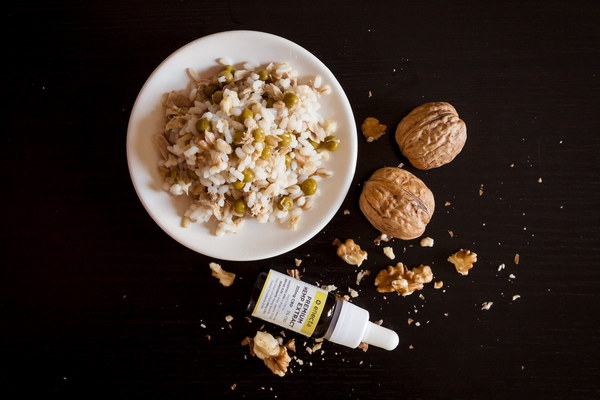Can a High Fever Excrete Dampness Exploring the Traditional Chinese Medicine Perspective
In traditional Chinese medicine (TCM), dampness is considered an internal pathogen that can lead to a variety of health issues. One of the most common questions among those who follow TCM is whether a high fever can act as a natural cure for dampness. In this article, we will delve into this topic, exploring the TCM perspective on the relationship between high fever and dampness.
In TCM, dampness refers to a substance that can accumulate in the body, leading to various symptoms such as fatigue, bloating, and aching joints. It is believed that dampness is often caused by an imbalance in the body's yin and yang, or by external factors such as excessive moisture, poor diet, or exposure to damp weather.
The idea that a high fever can expel dampness has its roots in the TCM philosophy that fever is a natural response of the body to fight off pathogens, including dampness. According to TCM, when a person experiences a high fever, the body's internal energy, or qi, is elevated, which can help to mobilize the dampness and expel it from the body.
Here are some key points to consider regarding the relationship between high fever and dampness:
1. Fever as a natural defense mechanism: TCM views fever as a sign that the body is actively fighting against an invader, such as dampness. By increasing the body's temperature, fever can help to eliminate the dampness through sweat or urination.

2. The role of the spleen and kidneys: In TCM, the spleen and kidneys are responsible for regulating the body's fluids, including dampness. A high fever can stimulate these organs to work more efficiently, thereby reducing dampness levels.
3. The importance of diet and lifestyle: TCM emphasizes that diet and lifestyle play a significant role in the accumulation of dampness. A high fever can serve as a catalyst for changing these habits, leading to a reduction in dampness.
4. The limitations of fever as a cure for dampness: While a high fever can help to expel dampness in some cases, it is not a guaranteed solution. In fact, a persistent high fever may indicate a more serious underlying condition, such as an infection, which requires medical attention.
It is important to note that the effectiveness of a high fever in expelling dampness varies from person to person. Some individuals may experience a reduction in dampness symptoms after a fever, while others may not. Additionally, relying solely on fever to cure dampness may not be advisable, as it is crucial to identify the root cause of the dampness and address it accordingly.
In conclusion, while the concept of using a high fever to expel dampness has its basis in traditional Chinese medicine, it is essential to approach this topic with caution. A high fever can indeed serve as a natural defense mechanism against dampness, but it is not a guaranteed cure. It is always advisable to consult a TCM practitioner or healthcare professional to determine the best approach for treating dampness, taking into account individual circumstances and health needs.









